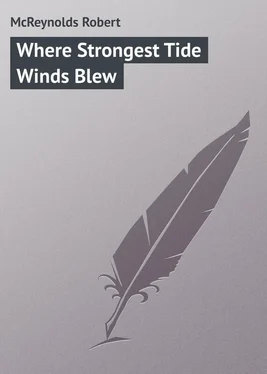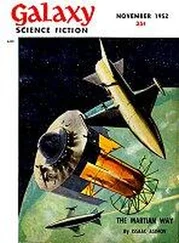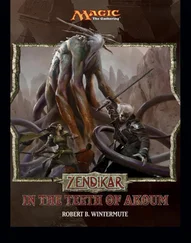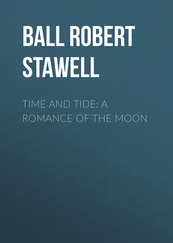Robert McReynolds - Where Strongest Tide Winds Blew
Здесь есть возможность читать онлайн «Robert McReynolds - Where Strongest Tide Winds Blew» — ознакомительный отрывок электронной книги совершенно бесплатно, а после прочтения отрывка купить полную версию. В некоторых случаях можно слушать аудио, скачать через торрент в формате fb2 и присутствует краткое содержание. Жанр: Прочие приключения, foreign_prose, на английском языке. Описание произведения, (предисловие) а так же отзывы посетителей доступны на портале библиотеки ЛибКат.
- Название:Where Strongest Tide Winds Blew
- Автор:
- Жанр:
- Год:неизвестен
- ISBN:нет данных
- Рейтинг книги:4 / 5. Голосов: 1
-
Избранное:Добавить в избранное
- Отзывы:
-
Ваша оценка:
- 80
- 1
- 2
- 3
- 4
- 5
Where Strongest Tide Winds Blew: краткое содержание, описание и аннотация
Предлагаем к чтению аннотацию, описание, краткое содержание или предисловие (зависит от того, что написал сам автор книги «Where Strongest Tide Winds Blew»). Если вы не нашли необходимую информацию о книге — напишите в комментариях, мы постараемся отыскать её.
Where Strongest Tide Winds Blew — читать онлайн ознакомительный отрывок
Ниже представлен текст книги, разбитый по страницам. Система сохранения места последней прочитанной страницы, позволяет с удобством читать онлайн бесплатно книгу «Where Strongest Tide Winds Blew», без необходимости каждый раз заново искать на чём Вы остановились. Поставьте закладку, и сможете в любой момент перейти на страницу, на которой закончили чтение.
Интервал:
Закладка:
I saw a light in a farmhouse in the distance and on our approach the inmates were aroused by the barking of their dog. The man was a typical Chilean, short and stout. He looked curiously at us and by signs Mitchell made him understand that we were hungry. He entered the house and returned with his wife and two children. Mitchell repeated his signs and the woman went inside and returned with a cup of milk, which we drank greedily. The man then beckoned us inside where we had a supper of meat, bread and coffee. They collected a number of sheep skins, gave us two mats for covering, and we slept soundly.
The next morning we helped the man in his garden, drew water for the cattle and made ourselves useful in other ways. I went almost every day for two weeks to the summit of the hill where I had seen a splendid view of the bay, to see if the Aven was still in port. One day I saw her spread her sails and I watched her until she was but a speck on the horizon.
Our host by this time, I think, knew we had run away, for on one occasion he followed me when I making my observation, but if he suspected anything he never took any steps to have us arrested, and in fact treated us with great kindness. When we left he gave us a large package of food and some clean stockings and shirts which his wife had made for us.
It was nightfall when we entered Valparaiso. Near the plaza Victoria we paused before an English boarding house sign. As we stood looking, a middle-aged man came out and asked us our business. Before we could reply he said: “I bet you are the two boys from the Aven.” Our frightened looks told him we were. He invited us in and gave us supper.
We soon learned to our dismay that this man was the notorious Cockney Spider, keeper of a runaway sailor’s boarding house. At night Cockney would start out to some vessel in the bay of Valparaiso, everything having been pre-arranged, take off those sailors desiring to runaway, secrete them in the house and when opportunity offered, ship them again. The amount of bounty paid by ships short of men was often large, and as Cockney always arranged to have poor runaways deep in debt for board and lodging, the sailor on being re-shipped was worse off, and Cockney the gainer. He often took desperate chances in stealing sailors, as the coast guard and other officials were sharp. Many in that traffic were captured, but Cockney always escaped.
After we spent the night in his home he asked me if I could write. Replying in the affirmative, I was installed as chief book-keeper of the notorious runaway sailor boarding house. My duties were to register the sailors brought to the house, keep a record of their meals, charge so much a night for lodging, and present their bill when they were ready to leave. I held the position for two weeks, when one night Cockney came home intoxicated and told me that he had shipped Mitchell that night on a French bark. A sailor gave me a sly wink and whispered, “Your turn will come next, he intends to ship you on a whaler.” My experience with the ice on the Aven had given me a horror of frozen seas, and that night I stole away from the boarding house.
I was in dread of Cockney Spider, and, in my determination to escape, I became a stowaway on a coast steamer and landed at Arica, with a few dollars in my pocket, paid to me by Spider.
When I arrived at Mollendo in company with Mr. John L. Thorndike, he introduced me to Mr. Hill, his general manager, as his “boy protector” and told him to give me employment and see that I was well provided for.
In a short while I was in the railway shops, learning the trade of machinist, and later I was engineer on the railroad running from the sea port of Mollendo to Arequipa, more than one hundred miles in the interior. The city is situated in a beautiful and fertile valley in the heart of the Andes. The majestic volcanic mountain Misti some miles away rises nearly four miles above the sea and smoke still issues from its crater.
I had lately been transferred from the shops in Mollendo to Arequipa, when, hearing fabulous stories of rich gold finds in the Andes, and being imbued with an adventurous spirit, I resolved to try my fortune in the new El Dorado.
V.
FAIREST FLOWER OF THE CORDILLERAS
I was in the heart of the Cordilleras, weary, footsore and alone. I was descending a rocky cliff a few hundred feet from a plateau, while the thunders roared with terrific crash. The rain fell in sheets, plunging in wild fury in cataracts down the mountain side. There was desolation and terror unutterable. I leaned close to a shelving rock, and as I thought of once happy days in Aberdeen, of the love bestowed upon me by my dear mother–gone forever from this world–my own condition, now a homeless wanderer in a foreign land, perhaps to soon meet death and my body be devoured by condors, I laid my head on my arms and wept bitterly.
I am not superstitious, neither do I believe that my condition at that time caused my mind to wander; a peaceful calm came over me; it seemed as if some loving one was near, fear vanished, and I looked up but beheld nothing. The storm raged with even greater fury. I walked and even began to sing the “Garb of Old Gaul.” I ignored the elements in their war and had almost reached the plateau when the storm ceased and the sun suddenly appeared. Calm and warmth came from what a few minutes before had seemed death and destruction.
A sudden turn in the trail and I beheld a child seated beneath the thick, spreading branches of a tree, her white apron filled with alpine flowers. “How came she here,” I wondered. Her dark bright eyes gazed questioningly into mine, eyes through which one could see the childish spirit and feel the witchery of her magic look; her raven locks fell in clusters over her fair temples and ended in ringlets about her shoulders; on her cheeks were the glowing tints of youth and health. As I spoke she rose and handed me a flower of delicate tint. I gallantly pinned it on the lapel of my coat, which won from her a pleasing look and smile. I could speak a little Spanish and she seemed to understand that I was going her way. Together we walked along the trail. Her childish grace appealed to me. A spirit of infinite goodness seemed to radiate from within and stirred my noblest impulses. A feeling of content settled upon me.
Near by, I saw some Indian huts and the tambo or tavern where Frank Dunn and I had stopped on our way to Puno. The child ran ahead, leaving me to follow.
The first sight of Puno had satisfied me that we had come to the most desolate spot in the world, Nature’s remains seemed to have been brought there and left without burial. The ground was thickly covered with a short, wild grass and appeared to be the natural dwelling place of the alpacas and wild vicunas.
I had been in Puno but a few days when I was offered work on board one of the steamers, but I longed again for Arequipa and friends. Dunn had secured work on one of the steamers and refused to return. I thought this was hard, as it was my money that had helped him from the time he left Arequipa until he secured employment. My money was almost gone, but I had gone to the Amaras market and bought what edibles I needed, and without hesitation had started alone to return to Arequipa, over those fearful heights and dread solitudes of the Cordilleras, when I found her.
When we were entering the tambo an elderly gentleman and the Indian host were speaking in Spanish, and even from my limited knowledge of the language I knew they were talking about me.
No doubt but my appearance in the heart of the Cordilleras wet, forlorn looking and alone aroused his sympathy. After a difficult attempt at opening a conversation, the beautiful child I had met looking on all the time, I was given to understand that he desired me to eat with them. Of course I consented, but I did not do justice to the meal as the dark eyes of the young girl were constantly upon me.
Читать дальшеИнтервал:
Закладка:
Похожие книги на «Where Strongest Tide Winds Blew»
Представляем Вашему вниманию похожие книги на «Where Strongest Tide Winds Blew» списком для выбора. Мы отобрали схожую по названию и смыслу литературу в надежде предоставить читателям больше вариантов отыскать новые, интересные, ещё непрочитанные произведения.
Обсуждение, отзывы о книге «Where Strongest Tide Winds Blew» и просто собственные мнения читателей. Оставьте ваши комментарии, напишите, что Вы думаете о произведении, его смысле или главных героях. Укажите что конкретно понравилось, а что нет, и почему Вы так считаете.











